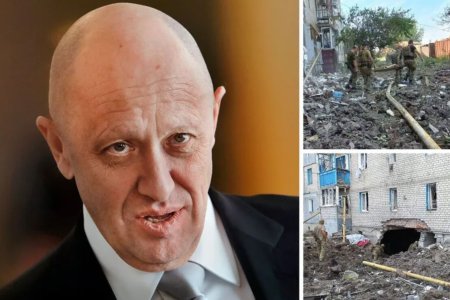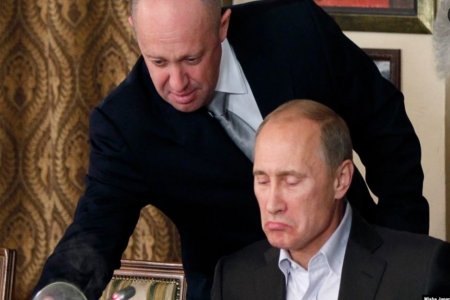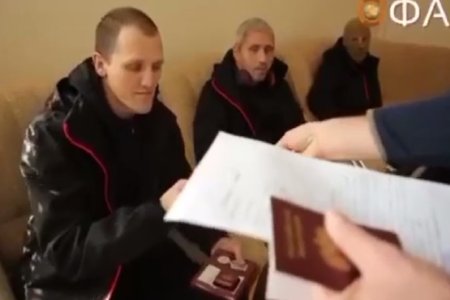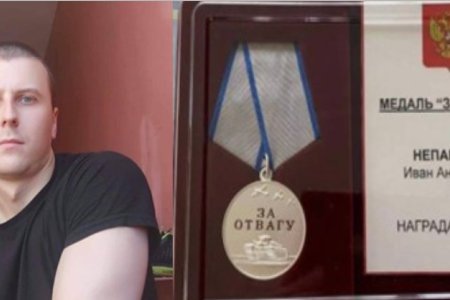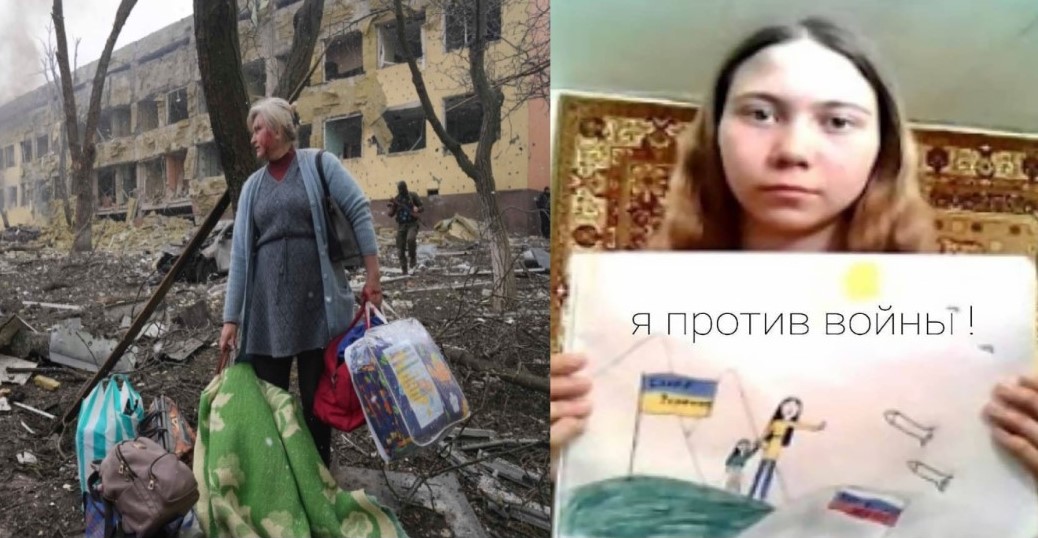
A draft bill tabled by the Speaker of the State Duma, Viacheslav Volodin and rushed through its second reading on 2 March extends the scope of draconian legislation outlawing so-called ‘fakes’ and ‘discrediting’ of Russian soldiers to cover so-called ‘volunteers’ fighting Russia’s war against Ukraine. The threat of sentences up to 15 years’ imprisonment will impose an effective clamp on publicizing details about the considerable number of Russian convicted killers and other criminals given their freedom, and substantial payment for going to kill Ukrainians. While it remains illegal to be a mercenary in Russia, this is strictly in theory, with only those who try to help Ukraine facing mercenary charges. Those mercenaries, including convicted criminals serving huge sentences for multiple murder and other grave crimes, who take up arms to satisfy the Kremlin’s appetite for Ukrainian territory are called ‘volunteers’ and ‘private military companies’ [‘pmc’] – ‘volunteer formations’.
The amendments were only announced by Volodin on 1 March 2023, and look likely to be adopted in full on 14 March, 2023. They were, reportedly, added to other draft bills which had already passed through their first reading in order to expedite the process. Such haste is theoretically in breach of regulations, but that did not stop the first repressive articles of the criminal and administrative codes being passed into law within ten days of Russia’s full-scale invasion of Ukraine. These were then broadened in late March 2022 to cover other “state RF bodies, carrying out their powers beyond the territory of the Russian Federation”. The new legislation will extend criminal liability for so-called ‘fakes’ (under Article 207.3 of Russia’s criminal code’ and ‘discrediting’ the army (Article 280.3) to supposed “voluntary formations, organizations, and individuals helping to carry out the tasks placed upon the Russian Federation armed forces”. The same amendments will also apply to the analogous article on ‘discrediting’ the army in Article 20.3.3 of Russia’s code of administrative offences.)
This amendment is in response to an appeal to Volodin from Yevgeny Prigozhin, a former convicted criminal, who gained a fortune through services to Russian leader Vladimir Putin, including his creation and financing of the so-called Wagner private military company. Prigozhin appears to have political aspirations, and began very publicly going around Russian prison colonies, recruiting convicted prisoners for the Wagner pmc from the summer of 2022. Prigozhin published his letter to Volodin in January 2023, proposing that the legislation include a ban on ‘circulating fakes’ about mercenaries fighting in the Wagner or other private military companies and on any attempts to ‘discredit’ them.
Both the original legislation from March 2022 and this do suggest that information must be ‘knowingly false’ to incur criminal or administrative liability. In practice, the legislation has been used to impose huge sentences for publishing entirely truthful information about Russia’s atrocities in Bucha, Izium, Kramatorsk and other Ukrainian cities. Mercenaries from the Wagner, Redut or other ‘private military companies’ will now be afforded at least the same shield. The level of protection may even be higher as journalists or others will likely apply self-censorship rather than risk long sentences for probing into these supposed ‘volunteers’’ criminal past and / or the pay and pardons they are offered for their mercenary activities.
The new bill will also increase sentences for these purported ‘fakes’ and pronouncements ‘discrediting’ those fighting in what Russia insists on calling its ‘special military operation’. Instead of the present sentence of up to three years’ imprisonment for Article 207.3 § 1 (the supposed “public circulation of knowingly false information” about those fighting Russia’s war against Ukraine) and for Article 280.3 § 1 (for “public acts aimed at discrediting” them), the new bill proposes a sentence of up to five years.
According to Pavel Chikov, lawyer and head of the Agora Human Rights Group, this changes the status of the ‘offence’, making it one of ‘medium gravity’, with this in turn making it possible to remand those charged under the articles in detention. It will also increase the time bar – the period when a person can face prosecution to six years. The bill also proposes a higher sentence for the ‘discrediting’ charge under Article 280.3 § 2, with this to increase from five to seven years.
The legislation passed back on 4 March 2022 already imposed sentences of up to 15 year’s imprisonment, with this now to be extended to so-called ‘fakes’ or ‘discrediting’ of mercenaries. In fact, however, Chikov calls this something of a scare tactic and points out that order to prosecute under Article 207.3 § 3 of the criminal code, ‘grave consequences of the fakes about the war’ are required. Up till now, nobody has been charged under this article.
Russia has already sentenced several Russians to long terms of imprisonment for merely telling the truth about the war and / or expressing opposition to Russia’s aggression. In July 2022, Alexei Gorinov became the first Russian to be convicted under the new Article 207.3. He was sentenced to seven years for talking about Russia’s killing of Ukrainian children. In February 2023, Maria Ponomarenko, a journalist and human rights activist from Barnaul (Siberia) to six years imprisonment for a post on Telegram about Russia’s bombing of the Drama Theatre in Mariupol on 16 March 2022. It was falsely claimed that Ponomarenko had ‘spread fake news’ in her post about a savage attack that killed hundreds of civilians, including many children, seeking shelter from Russian airstrikes. The bomb was dropped, despite huge signs around the building warning that children were inside, came just hours after the UN’s International Court of Justice had ordered Russia to cease all acts of aggression against Ukraine.
On 2 March 2023, a court in the Tula oblast placed a solo father Alexei Moskalev under house arrest, after he was detained the previous day because of his daughter’s anti-war picture. He is now facing charges of ‘discrediting the Russian army’ under Article 280.3 § 1, and his daughter has been sent, at least temporarily, to a children’s home.
